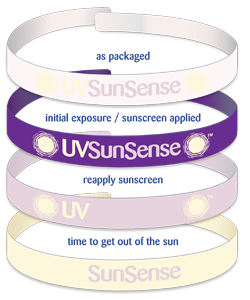
May 1st, 2010 by Paul Auerbach, M.D. in Better Health Network, Health Policy, Health Tips, Opinion, Research
Tags: Adipose Tissue, American, CAD, Caloric Intake, Cholesterol, Coca Cola, Coronary Artery Disease, Diabetes, Diet and Nutrition, Dr. Kelly Brownell, Elevated Blood Pressure, Fat, Food and Drink, Health Economics, Health Effects, Heart Disease, High-Calorie Drinks, Increased Blood Triglyceride Levels, Insulin Resistance, New England Journal of Medicine, Obesity Epidemic, Overweight, Pop, Public Health, Soda, Sugar Consumption, Sugar Intake, Sugar-Sweetened Beverages, Sweetness, Tax System, US, Weight Gain
No Comments »

 We are a nation stricken with an epidemic of obesity, which contributes to the incidence of diabetes and heart disease. Each of these has been linked to consumption of sugar intake, and in particular, sugar-sweetened beverages.
We are a nation stricken with an epidemic of obesity, which contributes to the incidence of diabetes and heart disease. Each of these has been linked to consumption of sugar intake, and in particular, sugar-sweetened beverages.
There’s nothing evil about sugar — it’s just that too much of it in certain forms is bad for you. For the purpose of definition, sugar-sweetened beverages contain added, naturally-derived caloric sweeteners such as sucrose (table sugar), high-fructose corn syrup, or fruit juice concentrates. Read more »
This post, American Obesity And Sugar-Sweetened Beverages, was originally published on
Healthine.com by Paul Auerbach, M.D..
May 1st, 2010 by RamonaBatesMD in Better Health Network, Health Tips, Opinion
Tags: Dermatology, Family Medicine, Limiting Sun Exposure, Plastic Surgery Practice, Primary Care, Reapplying Sunscreen, Skin Cancer Prevention, Sunblock, UV Rays, UVSunSense, Wristband Monitor
No Comments »

 We’re past spring break and headed toward the end of the school year and summer vacations. I noticed this product in the April issue of Plastic Surgery Practice.
We’re past spring break and headed toward the end of the school year and summer vacations. I noticed this product in the April issue of Plastic Surgery Practice.
UVSunSense is a wristband that monitors your exposure to sun. If you and your children have trouble remembering to reapply sunscreen or to just get out of the sun, then this might be just the ticket. Read more »
*This blog post was originally published at Suture for a Living*
May 1st, 2010 by DaveMunger in Better Health Network, Health Tips, Research, True Stories
Tags: Blood Pressure, Calcium, Calories, Carbohydrates, DASH diet, Diet and Nutrition, Dietetics, Food and Nutrition, General Medicine, Iron, McDonald's, Nutrients, Protein, Saturated Fat, Sodium, Super-Sized, Vitamin A, Vitamin C, Vitamin D, Weight Gain
1 Comment »


This week I’ve been trying to eat according to the DASH guidelines for lowering blood pressure. It actually hasn’t been too difficult — partly because I’m not following their strictest guidelines, which call for just 1,300 milligrams of sodium and 16 grams of saturated fat a day. I’ve been shooting for 2,300 milligrams of sodium and 22 grams of saturated fat.
In 2003, I tried a somewhat different “diet,” which in some ways was more difficult to follow, even though it only lasted one day. My son Jim (then age 11) and I ate every meal at McDonald’s for an entire day (yes, this was before Super Size Me). We recorded the experience on the Web. I thought it would be interesting to compare my day at McDonald’s to a typical day on DASH. Read more »
*This blog post was originally published at The Daily Monthly*
April 30th, 2010 by Shadowfax in Better Health Network, Health Tips, Humor, Opinion, True Stories
Tags: ED, Emergency Medicine, ER, Erectile Dysfunction, Hypotension, Hypotensive, Impotence, Little Blue Patch, Nitroglycerin, Sexual Behavior, Sexual Health, Sildenafil Citrate, Viagra
No Comments »

 A patient was brought in around midnight as a “possible stroke.” She was a 60-something woman who had suddenly become unresponsive.
A patient was brought in around midnight as a “possible stroke.” She was a 60-something woman who had suddenly become unresponsive.
She and her husband had been making love at the time, and he noticed that she was no longer conscious. Unable to revive her, he had called 911. She looked bad — but it was strange. Read more »
*This blog post was originally published at Movin' Meat*
April 29th, 2010 by Medgadget in Better Health Network, Health Tips, Research
Tags: CBT, Cognitive Behavioral Therapy, Depression, Internal Medicine, Internet-Based Treatment, Jan Bergstrom, Karolinska Institutet, Mental Health, Panic Disorder, Psychiatry, Psychology, Self-Help Program, Sweden
No Comments »

According to a doctoral thesis to be presented by Jan Bergström at the Karolinska Institutet in Sweden, cognitive behavioral therapy (CBT) via the Internet is just as effective in treating panic disorder as traditional group-based CBT. It’s also apparently efficacious for the treatment of mild and moderate depression.
Access to conventional CBT is limited in Sweden, so an Internet-based CBT was developed in which the patient undergoes an Internet-based self-help program and has contact with a therapist by email. Read more »
*This blog post was originally published at Medgadget*
 We are a nation stricken with an epidemic of obesity, which contributes to the incidence of diabetes and heart disease. Each of these has been linked to consumption of sugar intake, and in particular, sugar-sweetened beverages.
We are a nation stricken with an epidemic of obesity, which contributes to the incidence of diabetes and heart disease. Each of these has been linked to consumption of sugar intake, and in particular, sugar-sweetened beverages.




 We’re past spring break and headed toward the end of the school year and summer vacations. I noticed this product in the
We’re past spring break and headed toward the end of the school year and summer vacations. I noticed this product in the 


 A patient was brought in around midnight as a “possible stroke.” She was a 60-something woman who had suddenly become unresponsive.
A patient was brought in around midnight as a “possible stroke.” She was a 60-something woman who had suddenly become unresponsive.








